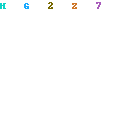Following his election as UEFA president, Michel Platini has pledged to lead something of a red revolution, beginning with an overhaul of the Champion’s League format. Former France captain and midfield maestro Platini, saw off competition from the previous incumbent, Leonart Johanssen by pledging to reduce to three the number of Champions' League places allocated to Italy, Spain, Germany and England.
“These countries should have three clubs each in the Champions League so that teams from other leagues that are not in the same financial bracket can compete with them on the pitch. There are not enough champions taking part in the competition. Yes to an open Champions League, no to a closed pseudo-NBA (America's basketball association).”
In contrast to Johanssen, who refused to consider change to a competition that has brought huge prosperity to the game, Platini appears to be advocating good egalitarian principles: equality of opportunity, fair competition and a redistribution of wealth away from the G14. And when couched in these terms, I find myself instinctively sympathizing with his proposals. Saying ‘we’ll take one team from each eastern European country, and 4 from England, Spain, Italy and Germany is a bit like a university with five places to fill saying ‘we’ll take one comprehensive kid and 4 privately educated ones.’ The argument that the privately educated children are simply better at the point of arrival merely perpetuates the inequality. Sometimes a little positive discrimination is, therefore, required to make things fairer.
These are good principles, which when applied to societies improve the lives of the individuals within them. But let’s not get carried away with our philanthropic ideals. My socialism does not compel me to agree with Platini. Careful reflection leads me to the conclusion that Football competitions are very, very different to the societies in which we live.
Notions like ‘equality’ are loaded moral terms, in that we often accept without consideration that equality is preferable to inequality. Our reasoned recognition that racial or social equality is preferable to its alternative can cloud our judgement on other issues. Equality is no moral absolute. Our belief in social or racial equality stems from considerations such as causing hurt or suffering to others is wrong. And we’d do well to remember this when analyzing Platini’s position.
We are dealing here with football clubs and not individuals. Football clubs do not stand in dole queues or have their credit cards rejected in supermarkets. They don’t experience the humiliation and frustration that poverty or discrimination brings about.
But, of course, football clubs are nothing without their fans and fans do surely feel the pain of inequality, when their club is denied their ‘fair share’. This, I grant you, is true. That football competitions should be more egalitarian as a result, however, is a truly ridiculous notion. Sport, by definition, produces winners and losers. If it didn’t, we simply wouldn’t watch it. The Champions’ League is not like sports day at a politically correct primary school, where every child must win a prize. It’s competitive. And we as fans want to watch the very best teams and the very best players. Perhaps, on reflection, Platini would also like to introduce a rule that says when any team goes 3 – nil up, the game must be immediately stopped with the winning team giving the losers a hug to say sorry. Not so ridiculous if the goal is ensuring greater equality between teams.
Perhaps Platini should reflect a little on his motivation for meddling with the format of the Champions’ league. I can’t help but wonder whether he’d be so keen to interfere if the French league had parity with England, Spain, Italy and Germany. With tongue firmly in cheek, I suggest that Platini’s prime motivation requires a contextual explanation. French history is characterized by a paranoid inferiority complex, a deep-rooted fear that they are not as powerful or important as their European neighbours. Throughout history, among those French who have attained positions of power, this fear has manifested itself in thinly disguised attempts to diminish the influence of others whilst claiming justice and equality as their prime motivation. Platini is merely a symptom of an ingrained national characteristic. His attempts to reduce the English, Spanish, German and Italian Champions' League contingent is no more instructed by a desire to protect the good of the game, than the cheese-mongers of Paris who stubbornly refuse to stock good-quality cheddar are motivated by a distaste for the finest cheese on God’s Earth. To understand Platini, we’ll do well to consider Thucydides’ analysis of the Peloponnesian War. ‘Fear, was the principal motive, though honour and self-interest afterwards came in.’
In The Mixer - Presented By
Blogger Templates | Free Wordpress Templates. Mobile platform by Phone Tracking, Music Guitar Song Chords Originaly by Designer Carl Mason.

1 Response to Platini’s principles have no place in football.
Love this one. those damn frenchies always trying to get one over us! i actually think Platini might have a point though. Less of the big four countries in the competition will give the smaller countries teams a chance to grow economically and therefore be better opposition in the future. It might make the competition more interesting especially to those countries outside the big four.
Something to say?